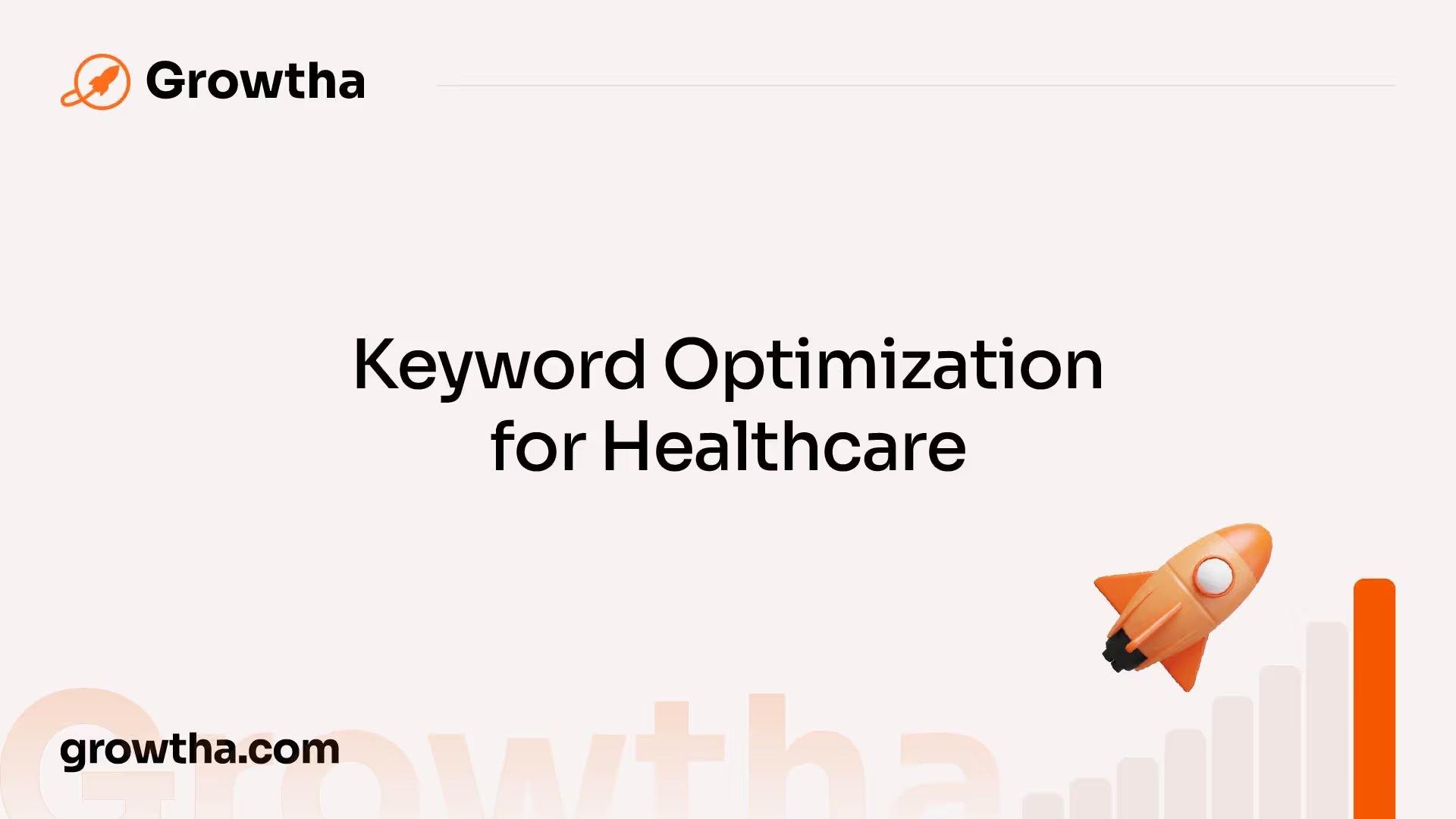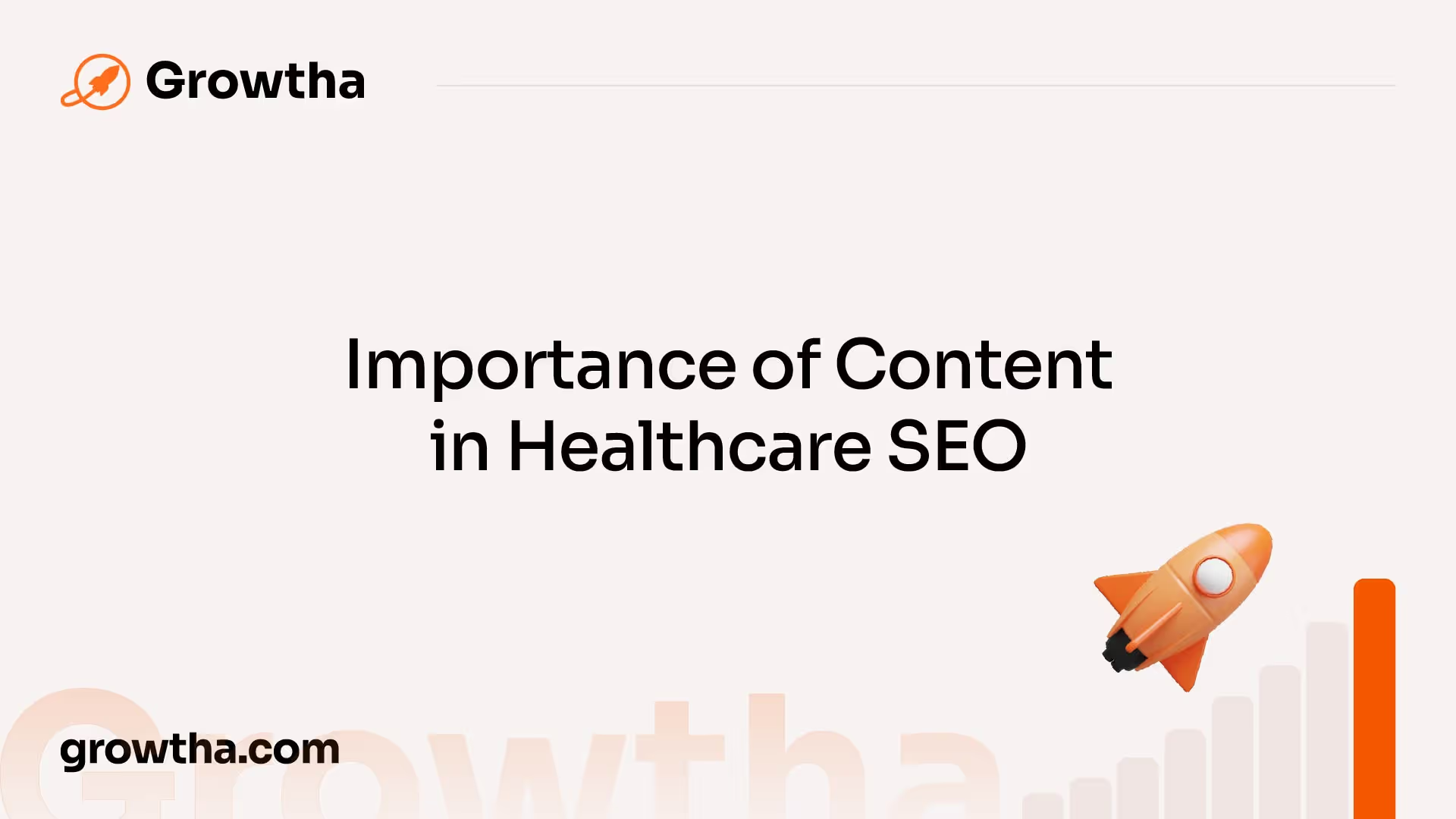The Benefits of Healthcare SEO Consulting
Understanding these challenges is crucial to developing effective strategies for reaching and engaging with the target audience.


The Benefits of Healthcare SEO Consulting
Understanding Healthcare SEO
When it comes to healthcare marketing, there are unique challenges that healthcare providers and marketers face compared to other industries. Understanding these challenges is crucial to developing effective strategies for reaching and engaging with the target audience. Additionally, healthcare marketers must ensure compliance with the Health Insurance Portability and Accountability Act (HIPAA) to protect patient information and maintain ethical marketing practices.
Healthcare Marketing Challenges
Healthcare marketers face various challenges in navigating the healthcare industry. These challenges include:
- Navigating the Complex Healthcare Industry: Healthcare is a complex industry with its own set of rules and regulations. Marketers need to understand the nuances of healthcare marketing, including compliance with HIPAA regulations and understanding the differences in healthcare marketing compared to other industries.
- HIPAA Compliance: Healthcare marketers have the responsibility to protect patient privacy and comply with HIPAA regulations. This means not sharing confidential patient information and avoiding false claims or inflated results in marketing efforts [1]. HIPAA regulations affect targeting methods and market segmentation within healthcare marketing strategies, as there are limitations on how healthcare providers and marketers can use and share patient data.
- Creating Compelling Copy: Writing compelling copy can be challenging in healthcare marketing due to HIPAA regulations, complex healthcare terminology, and the need to capture and retain audience attention amidst an abundance of online information [2]. Marketers must find ways to effectively communicate the value of their services while adhering to legal and ethical guidelines.
Importance of HIPAA Compliance

HIPAA compliance is critical in healthcare marketing to protect patient privacy and maintain trust. Healthcare organizations must ensure that patient information remains confidential and is not shared without proper consent. Violations of HIPAA regulations can lead to severe consequences, including legal penalties and damage to the reputation of the healthcare provider.
By prioritizing HIPAA compliance, healthcare marketers can build trust with their target audience and demonstrate their commitment to safeguarding patient information. Implementing secure data management practices, obtaining proper patient consent, and staying up to date with HIPAA regulations are essential steps in maintaining compliance.
Understanding the challenges of healthcare marketing and the importance of HIPAA compliance lays the foundation for effective healthcare SEO strategies. In the following sections, we will explore strategies for healthcare SEO, success stories, and key elements to consider when implementing healthcare SEO to enhance online visibility and reach the target audience effectively.
Strategies for Healthcare SEO

When it comes to healthcare SEO, implementing effective strategies is essential for improving online visibility and attracting relevant traffic. In this section, we will explore three key strategies: local SEO for healthcare providers, keyword optimization for healthcare, and the importance of content in healthcare SEO.
Local SEO for Healthcare Providers
For brick-and-mortar healthcare providers, local SEO plays a vital role in reaching potential patients who are seeking quick and convenient services close to their homes. This strategy focuses on optimizing online presence for local searches by incorporating location-specific keywords and incentivizing patient reviews.
To optimize local SEO, healthcare providers should consider the following tactics:
- Incorporate city names, neighborhoods, or state references in website content to let potential clients know that the practice is nearby.
- Ensure accurate information in local listings to improve search rankings and make it easier for patients to find and contact the practice [5].
- Distinguish the healthcare business from competitors by highlighting unique services or specialties offered.
- Comply with search engine algorithms and medical marketing regulations to protect visitors' data and provide reliable health information on websites [5].
- Optimize the website for mobile devices to enhance the user experience and capture potential patients on-the-go.
Implementing local SEO strategies ensures that healthcare providers appear prominently in local search results, generating increased web traffic and driving physical traffic to their medical practices.
Keyword Optimization for Healthcare

Keyword optimization is a fundamental aspect of healthcare SEO. By conducting thorough keyword research, healthcare providers can identify the terms and phrases that potential patients are using when searching for healthcare services. Incorporating these keywords strategically throughout the website helps improve search engine rankings and attract targeted traffic.
When optimizing keywords for healthcare, consider the following:
- Focus on long-tail keywords that are specific to the services offered, medical conditions treated, or the expertise of the healthcare provider.
- Use keywords naturally within the website content, including page titles, headings, meta descriptions, and body text.
- Incorporate keywords in image alt tags, as search engines also consider images in their ranking algorithms.
- Avoid keyword stuffing, as it can negatively impact the user experience and search engine rankings.
- Monitor keyword performance regularly and make adjustments as needed to ensure optimal results.
By incorporating relevant keywords throughout the website, healthcare providers can improve their visibility in search engine results and attract patients actively seeking their services.
Importance of Content in Healthcare SEO

Content is a crucial component of healthcare SEO. Well-written, informative, and engaging content not only helps healthcare providers establish authority and credibility but also attracts organic traffic from search engines.
To optimize content for healthcare SEO, consider these strategies:
- Develop high-quality content that provides valuable information to patients, addressing their concerns, questions, and needs.
- Include targeted keywords naturally within the content to improve search engine visibility.
- Use headings, subheadings, and bullet points to make the content easily scannable and user-friendly.
- Incorporate internal and external links to reputable sources to enhance the credibility of the content.
- Regularly update and refresh content to ensure its relevance and accuracy.
By prioritizing content creation and optimization, healthcare providers can establish themselves as trusted sources of information, increase organic traffic, and improve their overall SEO performance.
Implementing these strategies for healthcare SEO can help healthcare providers stay ahead of the curve, improve their online visibility, and attract the right audience to their websites. By focusing on local SEO, optimizing keywords, and creating valuable content, healthcare providers can enhance their online presence and effectively reach potential patients.
Success Stories in Healthcare SEO

Implementing effective healthcare SEO strategies can yield impressive results for healthcare providers and businesses. Let's explore some success stories from industry leaders who have achieved significant improvements in their online visibility and organic traffic:
Huble Digital Case Studies
Huble Digital has helped numerous clients in the healthcare industry achieve remarkable results through their SEO consulting services. Here are a few examples:
- Reduced Cannibalization and Increased Organic Traffic: Huble Digital assisted a client in reducing cannibalization of traffic from other regions, resulting in improved SEO performance. This led to a 25% increase in yearly organic traffic worldwide and a 10% year-over-year (YoY) organic website traffic growth in the main regions.
- Page 1 Rankings and Increased Traffic: Another client partnered with Huble Digital to achieve page 1 positions on Google in the UK and Ireland for high-volume, high-competition keywords. As a result, the client experienced a 63% increase in organic traffic and a 61% increase in monthly new contacts [7].
- Establishing a Strong Online Presence: Huble Digital helped a client create, launch, and grow the Vacuum Science World brand, website, forum, and content repository. The website now averages around 15,000 monthly organic visitors, with organic traffic accounting for over 80% of the site's overall traffic.
HawkSEM Success Stories
HawkSEM, a leading digital marketing agency, has also achieved notable success in helping healthcare providers improve their online presence through effective SEO strategies. Here are some highlights:
- Boosting Online Visibility and Reaching Potential Patients: HawkSEM recognizes the significance of patients searching for medical services online. They emphasize the importance of solid SEO strategies to reach potential patients, as they search for medical services online twice as much as relying on referrals [3].
We Are Amnet Insights
Unfortunately, there is no specific information available regarding success stories from We Are Amnet Insights at this time.
These success stories demonstrate the positive impact of healthcare SEO consulting services. By implementing effective strategies and optimizing their online presence, healthcare providers and businesses can attract more organic traffic, improve visibility, and ultimately connect with their target audience more effectively.
Implementing Healthcare SEO
Implementing effective healthcare SEO strategies requires careful planning and execution. In this section, we will explore three key elements of healthcare SEO implementation: building authority through link building, addressing public perception, and overcoming budget constraints.
Building Authority through Link Building
Building authority is a crucial aspect of healthcare SEO. One way to achieve this is through link building. By establishing relationships with relevant publications and industry leaders, healthcare organizations can secure valuable backlinks and citations. This helps to increase the credibility and visibility of their online presence. Conducting PR outreach and collaborating with authoritative figures in the industry can further enhance the reputation and authority of a healthcare website [3].
Addressing Public Perception
Public perception plays a significant role in healthcare marketing. Healthcare organizations need to address various factors that influence public perception, such as fragmented care, rising healthcare costs, perceived quality and safety of services, and accessibility to healthcare services. By actively engaging with patients, providing transparent information, and showcasing a commitment to patient satisfaction, healthcare organizations can work towards improving public perception and building trust.
Overcoming Budget Constraints
Limited budgets pose challenges for healthcare organizations when it comes to investing in marketing activities. However, it's essential to allocate resources effectively to support essential healthcare SEO initiatives. Prioritizing activities like keyword research, local SEO optimization, analytics, and content creation can make a significant impact on online visibility and patient engagement. Healthcare organizations can explore cost-effective strategies, such as leveraging social media platforms and optimizing their online presence through local directories, to maximize their reach within budgetary constraints [2].
By addressing these key elements, healthcare organizations can implement effective healthcare SEO strategies to improve their online visibility, enhance their reputation, and attract more patients. It's important to stay up-to-date with the latest SEO trends and adapt strategies accordingly to ensure long-term success in the highly competitive healthcare industry.
Key Elements of Healthcare SEO
To effectively optimize healthcare websites and improve their visibility in search engine results, several key elements of healthcare SEO must be considered. These elements include optimizing online reviews, writing compelling copy, and measuring SEO success.
Optimizing Online Reviews
Online reviews play a crucial role in the healthcare industry, with 80% of consumers trusting reviews as much as personal recommendations [6]. Positive reviews can enhance the trustworthiness and credibility of a healthcare organization, while negative reviews provide valuable insights that can be addressed to showcase a commitment to patient satisfaction [2].
To optimize online reviews, healthcare organizations should focus on gathering positive reviews from satisfied patients. This can be achieved by providing excellent patient experiences, encouraging patients to leave feedback, and promptly responding to both positive and negative reviews. Addressing negative feedback demonstrates a commitment to improving patient services and showcases transparency and responsiveness.
Writing Compelling Copy
Compelling copy is essential for healthcare SEO as it helps engage users and encourages them to take action. When creating website content, healthcare organizations should focus on providing clear and concise information that is relevant to their target audience. It is important to use language that is easily understood by patients and avoids excessive medical jargon.
Additionally, healthcare organizations should create content that is informative, valuable, and engaging. This can include articles, blog posts, and educational resources related to various health topics. By consistently producing high-quality content, healthcare organizations can position themselves as authoritative sources of information, attracting more visitors to their websites.
Measuring SEO Success
Measuring the success of healthcare SEO efforts is crucial to understanding the effectiveness of the strategies implemented. By monitoring key metrics, healthcare organizations can gain insights into the performance of their website and make data-driven decisions for improvement.
Some important metrics to measure SEO success include organic traffic, keyword rankings, bounce rate, and conversion rate. These metrics provide valuable information about the visibility of the website in search engine results, user engagement, and the effectiveness of the website in converting visitors into patients.
Tools like Google Analytics and Google Search Console can provide comprehensive data on these metrics, allowing healthcare organizations to track progress, identify areas for improvement, and make informed decisions to optimize their SEO strategies.
By optimizing online reviews, creating compelling copy, and measuring SEO success, healthcare organizations can enhance their online presence, attract more patients, and establish themselves as reputable sources of healthcare information. These key elements of healthcare SEO are essential for staying ahead of the curve in the competitive digital landscape of the healthcare industry.
References
[1]: https://www.bluleadz.com/blog/marketing-challenges-in-healthcare-and-solutions
[2]: https://www.weareamnet.com/blog/healthcare-marketing-challenges/
[3]: https://hawksem.com/blog/healthcare-seo/
[4]: https://www.gethealthie.com/blog/seo-for-medical-practices
[5]: https://leadtoconversion.com/healthcare-local-seo/
[6]: https://www.webfx.com/industries/health/hospitals-healthcare/local-seo/







